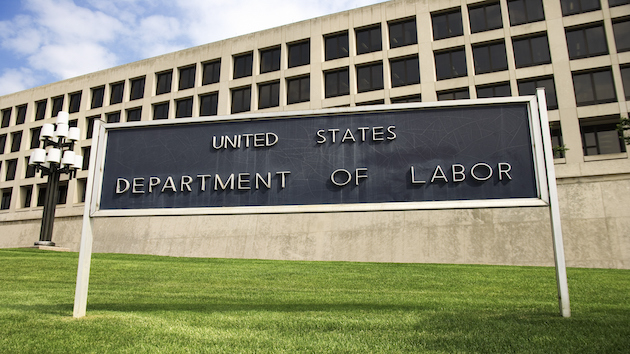(NEW YORK) — Jose Velasquez Castellano said he first worked on a farm when he was 8 years old. At age 13, he began working shifts as long as 12 hours each summer in a tobacco field.
“My mom was going through a little rough patch financially,” Castellano, who grew up in Greensboro, North Carolina, after emigrating from Mexico, told ABC News. “I didn’t want to be there — I wanted to be back home playing outside like my other friends.”
Children aged 12 and older in the U.S. are legally permitted to work long days in tobacco fields outside of school hours in part because child labor laws are relatively lax in agriculture compared to other sectors.
Castellano, an undergraduate student at Tufts University, is raising alarm about a recent rise in the use of child labor and a Republican-led effort in some statehouses to relax child labor law, allowing children to work longer hours with less oversight.
Critics like Castellano are backing a push to strengthen federal law that protects child workers.
Proponents of weaker child labor restrictions say they afford young people greater opportunity to develop work ethic and build savings. The push for such measures comes amid a tight labor market that has made it difficult for some businesses to hire workers.
The number of children illegally employed rose 69% since 2018, the Department of Labor found in February. Over the previous fiscal year, 835 companies investigated by the department had employed more than 3,800 children in violation of the law.
“We’ve got to think about what children are being affected by this – it’s the children desperate enough to work longer because they need the money,” Castellano said. “Work is going to consume them.”
Bills that aim to weaken child labor laws have been introduced or passed in 10 states over the last two years, according to a study from the left-leaning Economic Policy Institute released in March.
The bills soften requirements for additional paperwork for child workers and expand the hours during which minors are allowed to work.
Iowa enacted a law last month that permits 14- and 15-year-olds to work two extra hours each day that coincides with school, raising the limit from four to six hours. Such children are also able to work until 9 p.m. for the majority of the year and until 11 p.m. between June 1 and Labor Day, increasing the limit by two hours.
“In Iowa, we understand there is dignity in work and we pride ourselves on our strong work ethic,” Republican Gov. Kim Reynolds said in a statement last month after signing the measure. “Instilling those values in the next generation and providing opportunities for young adults to earn and save to build a better life should be available.”
Proponents of strengthening child labor restrictions have turned to Congress, reintroducing a bill on Monday that would address the relatively weak standards applied to minors working in agriculture.
The bill, called the Children’s Act for Responsible Employment, would raise the minimum age for young farmworkers working where their parents are employed from 12 to 14, and increase the minimum age for hazardous farm work from 16 to 18, according to Reid Maki, the director of child labor advocacy for the National Consumers League and coordinator of the Child Labor Coalition.
“We really feel it’s unfair for kids in this one sector to be exempted from child labor laws,” Maki told ABC News.
Castellano, who supports the bill, said he hopes minors don’t have to experience what he did.
“At the end of the day, these are children,” he said.
Copyright © 2023, ABC Audio. All rights reserved.












